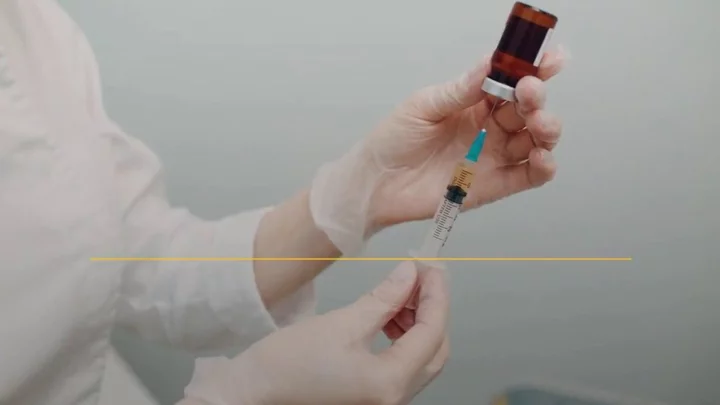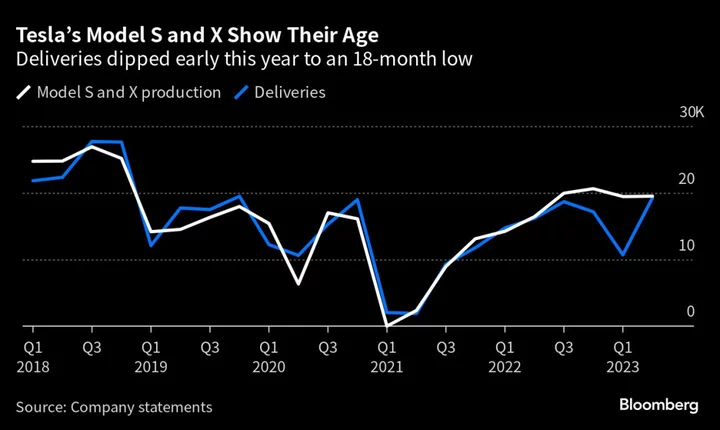
UK Faces Heat Wave Risk as Cool Summer Gives Way to Balmy Autumn
A potential heat wave threatens the south and east of the UK next week, just as the meteorological
2023-09-01 22:23

Best AT&T Labor Day Phone Deals: Apple iPhone 14 Pro from $0 Per Month With Select Trade-in
Getting a little tired of your phone? Thinking about trading up for something a little
2023-09-01 22:19

What to stream this weekend: Indiana Jones, 'One Piece,' 'The Menu' and tunes from NCT and Icona Pop
This week’s new entertainment releases include an album from the 20-member K-pop super group NCT, ”Indiana Jones and the Dial of Destiny” swings into streaming
2023-09-01 21:46

Scientists have discovered a new 'Antarctica' accent
Antarctica might be the only continent on Earth with no natural human habitation, but it’s emerged that an “Antarctica accent” is very much a thing. Despite having no locals, thousands of scientists have made up an ever-changing population in research stations over the years. The continent is so isolated and the level of interaction between researchers is so intense, that a common accent is beginning to emerge there despite people coming from different parts of the world. At its busiest points in the year during the summer, Antarctica is home to around 5,000 people. Only around 1,000 people live there during the winter months. The idea of accents changing due to human interaction on Antarctica is no different to the phenomenon seen throughout history at a glacial pace. However, given the very specific sample size, it’s an opportunity for scientists to study it at a much quicker rate and on a much smaller scale. Experts at the Ludwig Maximilian University of Munich published a study in 2019 which focused on the change in accents observed in 11 people who took part in the British Antarctic Survey. @human.1011 There’s an Antarctic Accent! #language #linguistics #english #antarctica Of the 11 who were studied, eight came from England, one from the US, one from Germany and one from Iceland. Their voices were recorded every six weeks, and the team found that over time they developed longer vowel sounds. There was a physical change too, with participants pronouncing the “ou” sound in the front of their mouths rather than the back of their throats. Speaking to IFL Science, Jonathan Harrington, study author and Professor of Phonetics and Speech Processing at the Ludwig-Maximilians University of Munich said: "The Antarctic accent is not really perceptible as such – it would take much longer for it to become so – but it is acoustically measurable. "It's mostly an amalgamation of some aspects of the spoken accents of the winterers before they went to Antarctica, together with an innovation. It's far more embryonic [than conventional English accents] given that it had only a short time to develop and also, of course, because it's only distributed across a small group of speakers.” Sign up for our free Indy100 weekly newsletter Have your say in our news democracy. Click the upvote icon at the top of the page to help raise this article through the indy100 rankings.
2023-09-01 20:59

Scientists believe they have found a cure for alcoholism
Alcohol addiction ruins millions of lives every year, but scientists may have found a cure for this terrible affliction. A new treatment for alcohol use disorder (AUD) has been trialled in monkeys with impressive results and, if these translate to human trials, the impact could be monumental. A team of neuroscientists and physiologists from across the US tested a new type of gene therapy to see if they could directly target the underlying brain circuitry associated with sustained heavy drinking. As they noted, in the journal Nature Medicine, people suffering from AUD commonly return to alcohol use even if they attempt to quit. This is largely to do with what’s known as mesolimbic dopamine (DA) signalling – meaning how the central nervous system circuit communicates the feelgood neurotransmitter dopamine. A protein called glial-derived neurotrophic factor (GDNF) is key to keeping these neurons in this reward circuitry functioning. However, experts have found that levels of GDNF are reduced in people with AUD during periods of alcohol abstinence, most notably in a region of the brain called the ventral tegmental area (VTA), as IFLScience notes. Therefore, the researchers decided to test whether using gene therapy to deliver more GDNF to the VTA could help reinforce this crucial dopaminergic signalling and prevent patients from suffering an alcoholic relapse. The team of scientists explained how alcohol consumption in non-addicts prompts the release of dopamine, creating a pleasurable buzz feeling, but chronic alcohol use causes the brain to adapt and stop releasing so much dopamine. “So when people are addicted to alcohol, they don’t really feel more pleasure in drinking,” Dr Kathleen Grant, a senior co-author of the study, said in a statement. “It seems that they’re drinking more because they feel a need to maintain an intoxicated state.” For their research, Dr Grant and her colleagues used eight rhesus macaque monkeys, who were exposed to increasing concentrations of alcohol over four 30-day “induction” periods. The monkeys then had free access to alcohol and water for 21 hours a day for six months, during which they developed heavy drinking behaviours. This was then followed by a 12-week abstinence phase, with the GDNF treatment performed four weeks in for half of the subjects. The gene therapy was delivered using a a viral vector containing a copy of the human GDNF gene injected directly into the primate’s VTA, according to IFLScience. And the results were truly jaw-dropping. “Drinking went down to almost zero,” Dr Grant said. “For months on end, these animals would choose to drink water and just avoid drinking alcohol altogether. They decreased their drinking to the point that it was so low we didn’t record a blood-alcohol level.” The most exciting aspect of their findings is the suggestion that gene therapy could offer a permanent solution for people with the most severe cases of AUD. This will be a welcome glimmer of hope to many, given that some 29.5 million people were diagnosed with AUD in the US alone in 2021, according to the National Institute on Alcohol Abuse and Alcoholism. Of these 29.5 million sufferers, almost a million (894,000) were aged between 12 and 17. It’ll likely be some time before we know for sure whether the gene therapy can be rolled out in humans, but it’s an important first step in tackling this devastating disorder. Sign up for our free Indy100 weekly newsletter Have your say in our news democracy. Click the upvote icon at the top of the page to help raise this article through the indy100 rankings.
2023-09-01 20:52

Broadcom falls as forecast pales before Nvidia's blowout results
Broadcom shares fell 4.2% in premarket trading on Friday as the semiconductor maker's quarterly revenue forecast fell short
2023-09-01 20:25

Tesla’s $41,000 Model X Discount Unlocks Subsidies Musk Wanted Gone
Tesla Inc.’s latest discounts will newly qualify one of its models for federal subsidies that Elon Musk said
2023-09-01 20:18

Panasonic Is Testing 'Power-Generating Glass' Panels for Buildings
Panasonic is testing "power-generating glass" which it expects to start selling by 2028 for use
2023-09-01 20:17

Fast fashion firms prepare for EU crackdown on waste mountain
By Corina Pons and Helen Reid BARCELONA/LONDON In a warehouse on the outskirts of Barcelona, women stand at
2023-09-01 19:50

A California Community Is Fighting Back Against Utopian City Funded by Ultra-Rich
A secret plan backed by tech billionaires to create a new city northeast of San Francisco is running
2023-09-01 18:59

Astrologer explains why you might be feeling a little 'odd' at the moment
Have you been feeling slightly off recently? Have things not been working in your favour? Well you're not alone – and astrologers believe there's a mystic reason behind it. There's been a recent spike in TikTok uploads exploring retrograde, but what actually is it? In short, retrograde simply means when a planet is moving in the opposite direction. The age-old astrological theory has been researched for thousands of years – but now, thanks to social media and a drive towards self-care and mindfulness, interest in astrology has heightened. Most people will be familiar with the phrase 'Mercury retrograde', but the motion can also happen to all of the planets. Currently, there are seven planets in retrograde. Janelle Palibrk told AU News that she believes one planet can leave people feeling "sensitive" or "intense". However, she claims that "with 7 planets in retrograde, it’s going to be almost impossible to avoid some kind of response, which is why as a collective we are all feeling a little stressed and uncomfortable." According to Yoga Journal, the dates are: Pluto retrograde: May 1 – October 11, 2023 Neptune retrograde: June 30 – December 6, 2023 Saturn retrograde: June 17 – November 4, 2023 Venus retrograde: July 22 – September 3, 2023 Chiron retrograde: July 23 – December 26, 2023 Mercury retrograde: August 23, 2023 – September 15, 2023 Uranus retrograde: August 28, 2023 – January 27, 2024 Jupiter retrograde: September 4 – December 31, 2023 @_thelunarchild @amydemure Personal readings are available ✨ #zodiac #zodiacsigns #horoscope #astrology @innerworldsastrology #greenscreen Why you’re feeling stuck #astrology #zodiac #horoscope Meanwhile, David J. Helfand, Professor of Astronomy and Columbia University Chair, slammed the astrological theory as "arrant nonsense." Helfand previously told Indy100 that the retrograde motion of Mercury is a "simple consequence of the fact that we observe the sky from a moving platform we call Earth as it orbits the Sun. The other planets also orbit the Sun, all in the same direction." "The apparent motion of any planet as observed from Earth is a combination of the orbit of the planet and the orbit of Earth," he added. "Simple geometry shows that roughly three times a year (for Mercury – less often for other planets on longer orbits), these combined motions give the Earth-bound observer the illusion that the other planet has reversed its direction of motion compared to the background stars." He stated that the orbit of Mercury is governed by laws of gravity and is completely unchanged, which has "been well-understood for over 400 years – it's hardly a new idea." Helfand continued: "But apparently, some people prefer 2000-year-old views of the world in which the planets govern their lives – no need to take any personal responsibility then, is there? "In fact, the gravitational force of Mercury on an Earth-bound you is less than the force of your dog on you when you pat him or her on the head." He said: "Indeed, patting your dog on its head is likely to have a positive influence on your mood. Maybe people should try that instead of contemplating arrant nonsense about the planets." Sign up for our free Indy100 weekly newsletter Have your say in our news democracy. Click the upvote icon at the top of the page to help raise this article through the indy100 rankings.
2023-09-01 18:54

NFTs, Once Hyped as the Next Big Thing, Now Face ‘Worst Moment’
NFTs first crossed Daniel Maegaard’s radar in 2018. He started investing in the tokens in 2019 and by
2023-09-01 18:52
